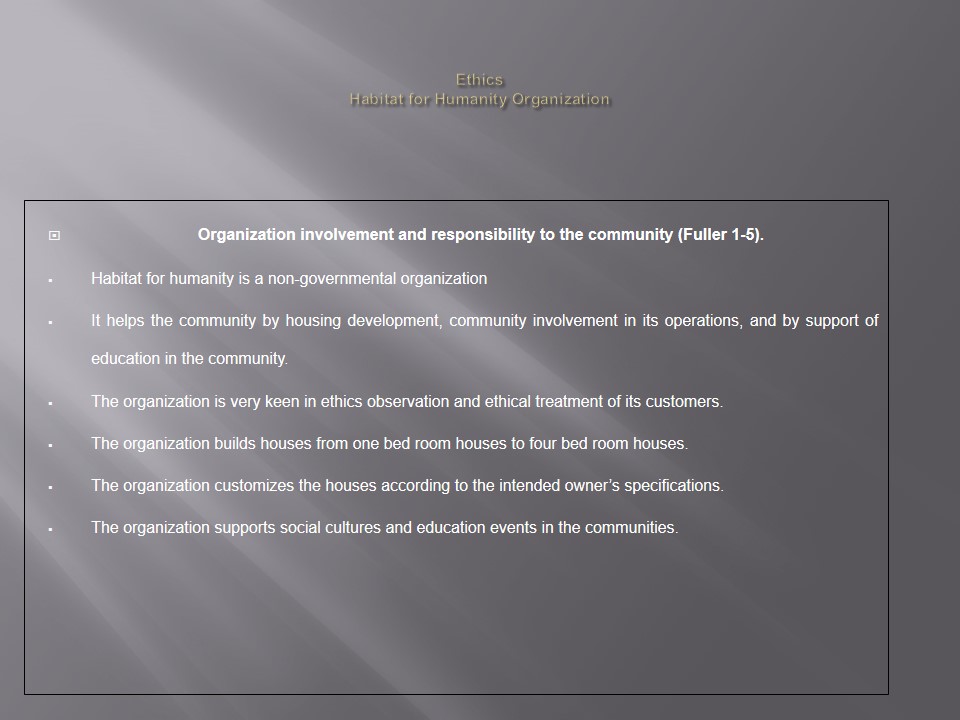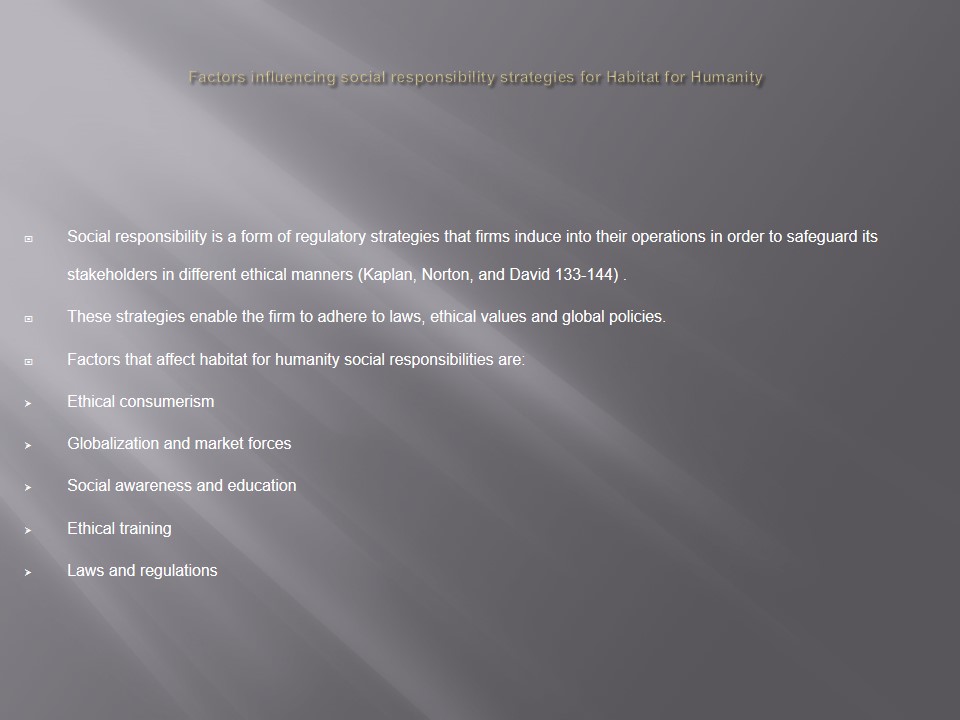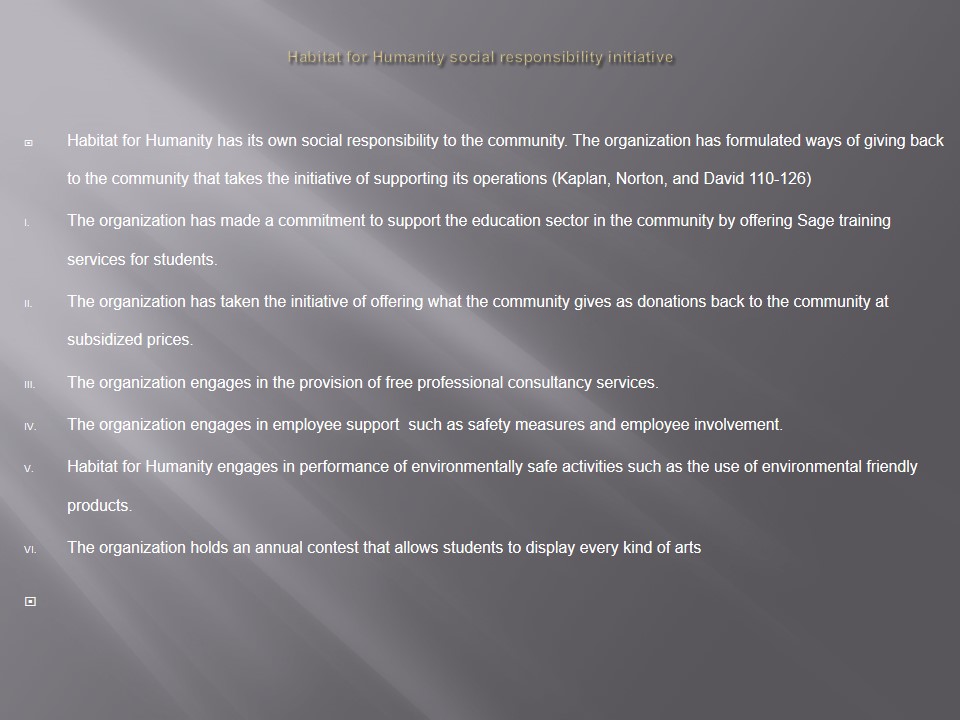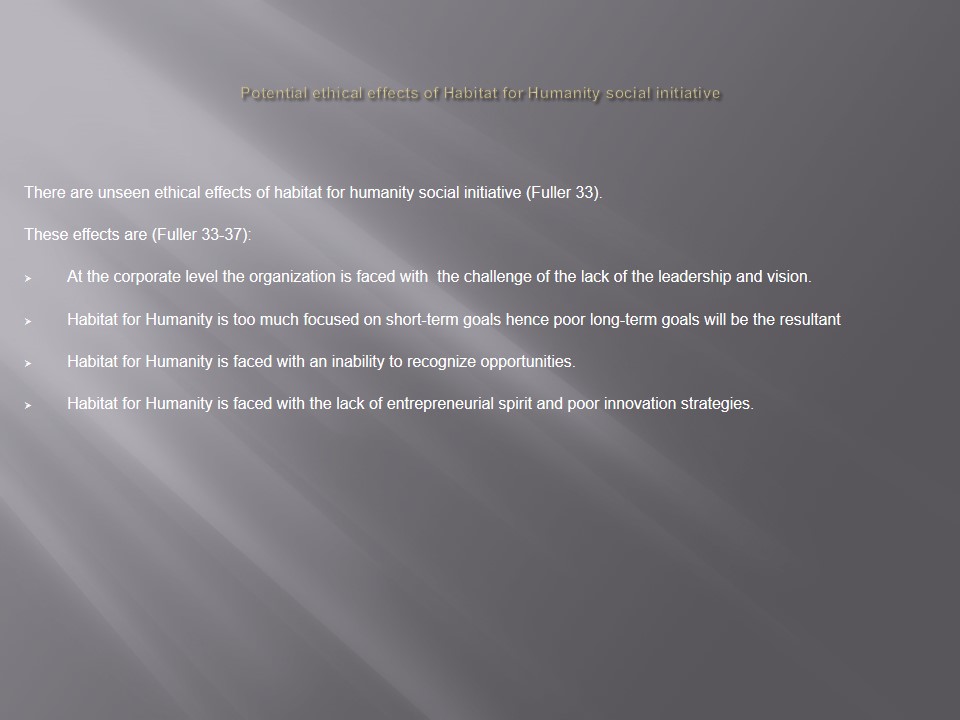- Organization involvement and responsibility to the community (Fuller 1-5):
- Habitat for humanity is a non-governmental organization.
- It helps the community by housing development, community involvement in its operations, and by support of education in the community.
- The organization is very keen in ethics observation and ethical treatment of its customers.
- The organization builds houses from one bed room houses to four bed room houses.
- The organization customizes the houses according to the intended owner’s specifications.
- The organization supports social cultures and education events in the communities.
Overview
Habitat for humanity, a non-governmental organization, helps the community by developing houses and carrying out housing activities to help lower income families. The organization has employed the services of EPICS to better their quality of services in a bid to develop finer ethics and values. Ethics are the main guiding principle for the organization to be able to guide people on better choices of houses.
Habitat for humanity involvement in the community is seen through several ways. The organization maintains the Habitat ReStore which is involved in accepting donations from the community members. The donations range from new and gently used building materials, appliances, furniture, and tools among many other home improvement items. The organization employs community based skills in restoration of the items and later sells them to the community at a fraction of the retail price. In general it provides the community members with an option of affording these items at lower costs.

Factors influencing social responsibility strategies for Habitat for Humanity
- Social responsibility is a form of regulatory strategies that firms induce into their operations in order to safeguard its stakeholders in different ethical manners (Kaplan, Norton, and David 133-144) .
- These strategies enable the firm to adhere to laws, ethical values and global policies.
- Factors that affect habitat for humanity social responsibilities are:
- Ethical consumerism;
- Globalization and market forces;
- Social awareness and education;
- Ethical training;
- Laws and regulations.

Habitat for Humanity social responsibility initiative
- Habitat for Humanity has its own social responsibility to the community. The organization has formulated ways of giving back to the community that takes the initiative of supporting its operations (Kaplan, Norton, and David 110-126):
- The organization has made a commitment to support the education sector in the community by offering Sage training services for students.
- The organization has taken the initiative of offering what the community gives as donations back to the community at subsidized prices.
- The organization engages in the provision of free professional consultancy services.
- The organization engages in employee support such as safety measures and employee involvement.
- Habitat for Humanity engages in performance of environmentally safe activities such as the use of environmental friendly products.
- The organization holds an annual contest that allows students to display every kind of arts.

Potential ethical effects of Habitat for Humanity social initiative
There are unseen ethical effects of habitat for humanity social initiative (Fuller 33).
These effects are (Fuller 33-37):
- At the corporate level the organization is faced with the challenge of the lack of the leadership and vision.
- Habitat for Humanity is too much focused on short-term goals hence poor long-term goals will be the resultant.
- Habitat for Humanity is faced with an inability to recognize opportunities.
- Habitat for Humanity is faced with the lack of entrepreneurial spirit and poor innovation strategies.

Works cited
Fuller, Millard. More than Houses: Habitat for Humanity. Nashville, Tennessee: Word Publishing Print.
Kaplan, Robert , and D. P. Norton. ‘Transforming the Balanced Scorecard from Performance Measurement to Strategic Management.’ Accounting Horizons, Vol. 15, No. 2 (2001). Print.